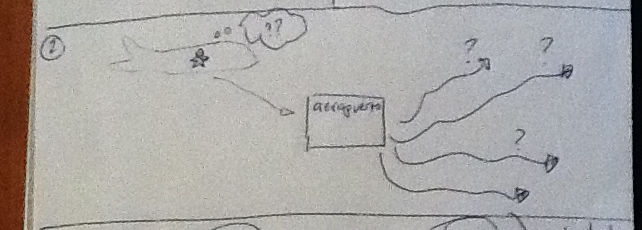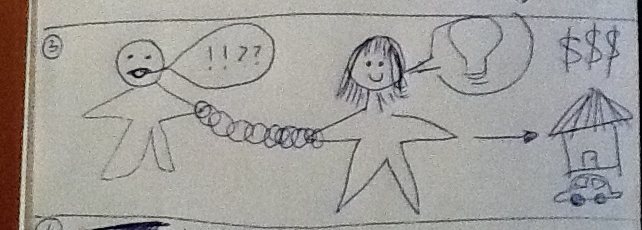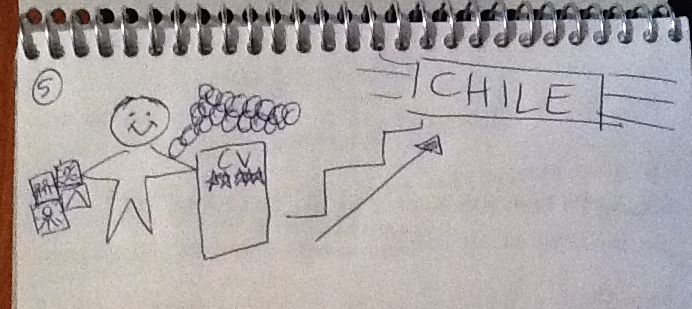Needfinding for the Global Citizen
As I mentioned in my last post, I’m studying Diplomado en Creatividad e Innovación, a new program in the design school of one of Chile’s best universities. It’s a night-and-weekend class with a diverse group of students. The class has several different modules, each with a different teacher. We just finished a section on needfinding. […]
As I mentioned in my last post, I’m studying Diplomado en Creatividad e Innovación, a new program in the design school of one of Chile’s best universities. It’s a night-and-weekend class with a diverse group of students.
The class has several different modules, each with a different teacher. We just finished a section on needfinding.
Our teacher, an anthropologist, guided us through all the steps: observation, problem definition, interviewing, storyboarding, and analysis. We narrowed down the vague and abstract concept of the global citizen into a more specific population: Chilean professionals who want to go overseas to study or work in order to have better opportunities upon returning to Chile. Then we methodically created an interview guide, and each interviewed one or two people who fit the description.
The most fun, useful and concrete tool we used to summarize our research? The storyboard. This is what we presented:
A Chilean professional daydreams of working or studying abroad. His daydreams gravitate towards four key areas: the potential for growth in his career and life, the logistics of the trip (where to live? how to get around?), the language skills he’ll need, and how he’ll finance this experience.
Then, when he’s on his way to his destination, he’s full of questions about these four topics.
He arrives at the destination. He’s confused and exhausted and full of urgent questions. Then, he meets a kind local who knows the area well. She helps him find a place to live, and figure out how to get around. She also helps him stabilize his financial situation.
A few months or years later, he graduates. At this point he speaks the language(s) well. He has a strong, multicultural network and has matured as a professional.
When he gets back to Chile, he has memories, a big network of contacts, and a 5-star CV. He’s well on his way to climbing the ladder, both professionally and personally.
What was really challenging about this exercise was to stay in a place of empathy and research, rather than immediately jumping to solutions. Instead of talking about, say, a search engine for overseas scholarships, a job-placement program, or a guidebook for the upwardly mobile Chilean global citizen, we had to focus on the experience that these aspiring expats were envisioning.
Almost every person we interviewed mentioned that it would be important to have a friend, tutor, or guide in the destination to help with local logistics, so we emphasized that person’s role in the storyboard.
All of the interviewees talked about going to a country that’s more developed than Chile (US, UK, Europe) to develop professionally and personally and “see the future.” No one talked about going to Bolivia or Vietnam or Ghana or any supposedly less developed country.
The teacher encouraged us to analyze what wasn’t said. Why did no one talk about working or studying abroad in less-developed countries? Where do our interviewees get their information about opportunities abroad?
Overall, this exercise stimulated lots of ideas and new questions.
What do you think of our storyboard? Have you ever done a needfinding exercise or drawn a storyboard of the experience of your target audience?




